1/35 JSU-152
43,95€
In stock

*Please check our Privacy Policies to see how to we use your personal data.
*Por favor revisa nuestra Política de Privacidad para ver como tratamos tus datos personales
Beast Killer
In the latter half of WWII, in order to counter German tanks, the Russian army used the JS-2 heavy tank’s chassis to create the JSU-152 heavy self-propelled gun. It featured improved armor protection and a simple superstructure which housed a massive ML-20S 152mm howitzer. They officially entered combat in the summer of 1944 during Operation Bagration, where Russian soldiers gave it the nickname Zveroboy (beast killer) due to its ability to destroy Tiger I and Panther tanks. The JSU-152 proved its effectiveness against both tanks and fortifications all the way to the Battle of Berlin and greatly contributed to the Russian victory.
About the Model
★1/35 scale plastic assembly kit of the Russian JSU-152. Length: 258mm, Width: 92mm.
★The dynamic form of the tank along with its 152mm howitzer has been realistically reproduced.
★Mantlet and front hull feature realistic cast metal surface texture.
★Hatch can be assembled in either open or closed position. Loader’s hatch is movable.
★Realistic separate type resin tracks and belt type tracks included.
★Photo-etched engine grilles enhance realism.
★4 types of markings included.
The Russian army utilized the JS-2 heavy tank chassis to create the JSU-152 t, which opposed German tanks such as the Tiger I. The heavy self-propelled gun first entered into battle at Kursk in 1943. The JSU-152 featured improved armor protection and a simple superstructure, in which the ML-20S 152mm Howitzer resided. The Howitzer could fire the same ammunition as other guns. From up to 700m away, the Howitzer could provide direct fire and from up to 15km away the vehicle could provide indirect fire. The heavy shells could penetrate 120mm armor at a distance of 1km and destroy concrete walls up to 300m thick. In September 1943, mass production began on the JSU-152. In the summer of 1944, the JSU-152 entered its first official battle during Operation Bagration. The JSU-152 earned the nickname “Zveroboy (beast killer)” due to the vehicles ability to destroy Tiger I and Panther tanks. The JSU-152 also greatly contributed to the Russian victory at the Battle of Berlin. Over 4,075 JSU-152 were built during WWII and over 5,000 were produced after WWII and posed a threat to the West until the 1970s.
Asesino de bestias
En la segunda mitad de la Segunda Guerra Mundial, para contrarrestar los tanques alemanes, el ejército ruso utilizó el chasis del tanque pesado JS-2 para crear el cañón autopropulsado pesado JSU-152. Presentaba una protección de armadura mejorada y una superestructura simple que albergaba un obús ML-20S de 152 mm. Entraron oficialmente en combate en el verano de 1944 durante la Operación Bagration, donde los soldados rusos le dieron el sobrenombre de Zveroboy (asesino de bestias) debido a su capacidad para destruir los tanques Tiger I y Panther. El JSU-152 demostró su efectividad contra tanques y fortificaciones hasta la Batalla de Berlín y contribuyó en gran medida a la victoria rusa.
Sobre el modelo
★ Kit de montaje de plástico a escala 1/35 del ruso JSU-152. Longitud: 258 mm, ancho: 92 mm.
★ La forma dinámica del tanque junto con su obús de 152 mm se ha reproducido de manera realista.
★ El manto y el casco frontal presentan una textura realista de superficie de metal fundido.
★ La compuerta se puede ensamblar en posición abierta o cerrada. La escotilla del cargador es móvil.
★ Pistas de resina tipo realista y pistas de correa incluidas.
★ rejillas de motor fotograbados mejoran el realismo.
★ 4 tipos de marcas incluidas.
El ejército ruso utilizó el chasis del tanque pesado JS-2 para crear el JSU-152 t, que se opuso a los tanques alemanes como el Tiger I. El arma autopropulsada pesada entró por primera vez en la batalla en Kursk en 1943. El JSU-152 presentó mejoras Protección de armadura y una superestructura simple, en la que residía el obús ML-20S 152 mm. El obús podría disparar la misma munición que otras armas. A una distancia de hasta 700 m, el obús podría proporcionar fuego directo y, a una distancia de hasta 15 km, el vehículo podría proporcionar fuego indirecto. Los proyectiles pesados podrían penetrar una armadura de 120 mm a una distancia de 1 km y destruir muros de hormigón de hasta 300 m de espesor. En septiembre de 1943, comenzó la producción en masa en el JSU-152. En el verano de 1944, el JSU-152 entró en su primera batalla oficial durante la Operación Bagration. El JSU-152 se ganó el apodo de “Zveroboy (asesino de bestias)” debido a la capacidad del vehículo para destruir los tanques Tiger I y Panther. El JSU-152 también contribuyó en gran medida a la victoria rusa en la Batalla de Berlín. Más de 4.075 JSU-152 se construyeron durante la Segunda Guerra Mundial y más de 5.000 se produjeron después de la Segunda Guerra Mundial y representaron una amenaza para Occidente hasta la década de 1970.



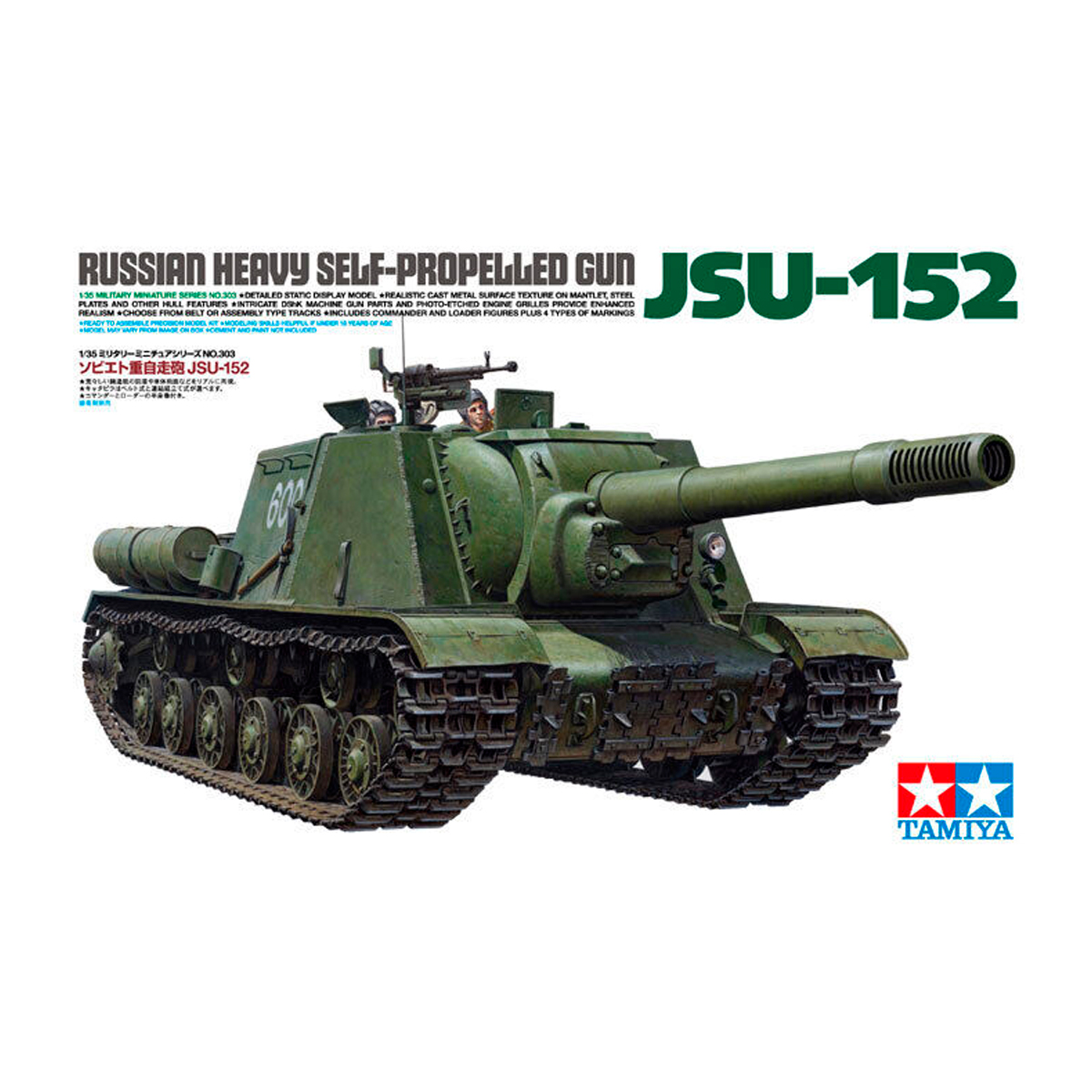
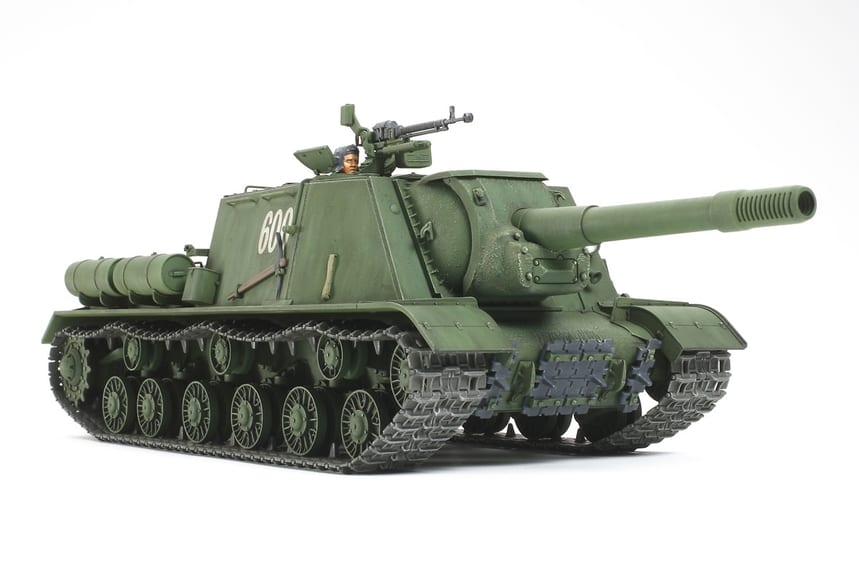

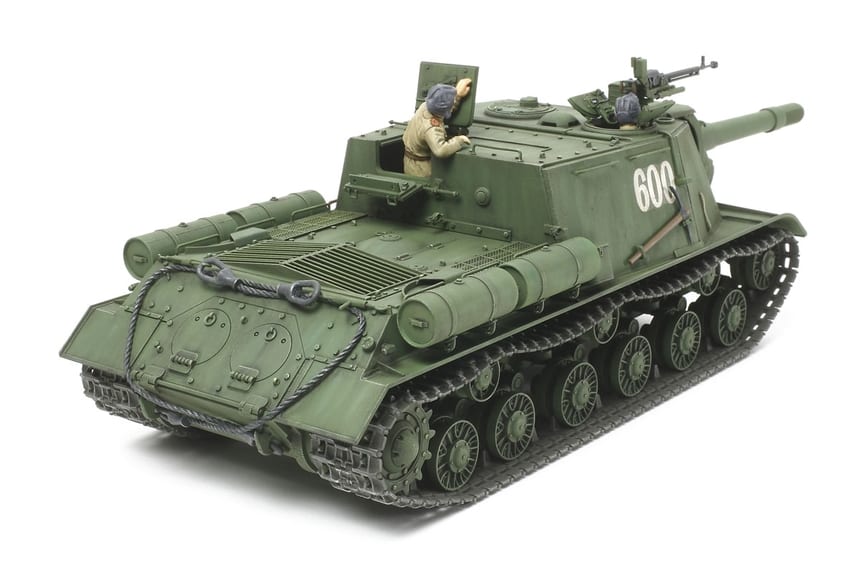
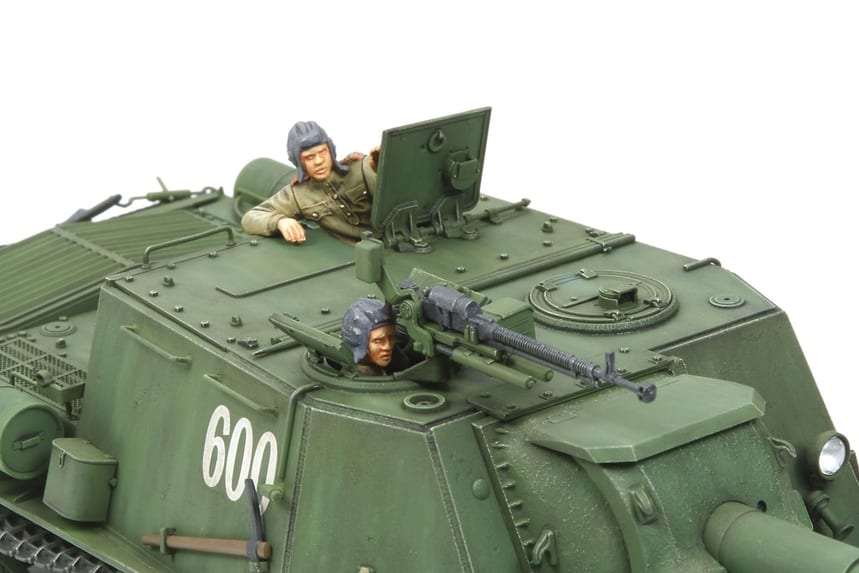
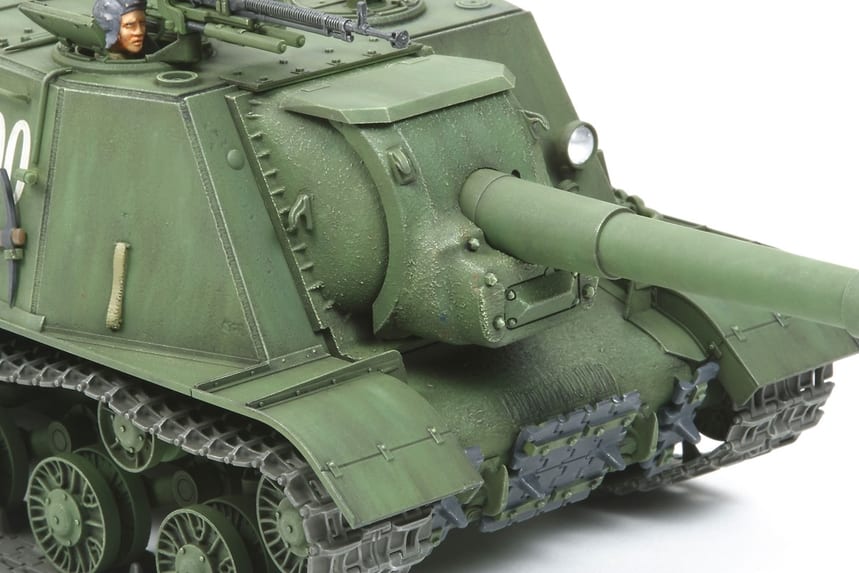
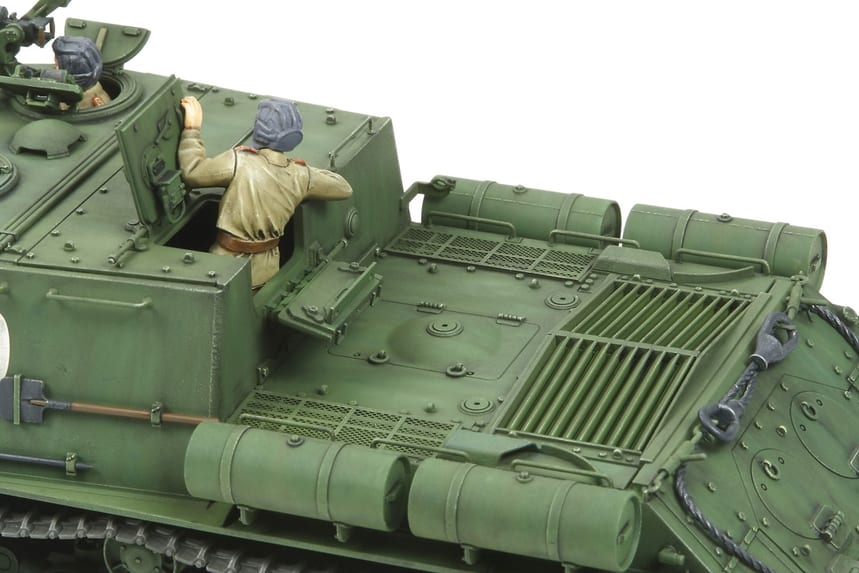

 Request of SDS product data file / Product security
Request of SDS product data file / Product security